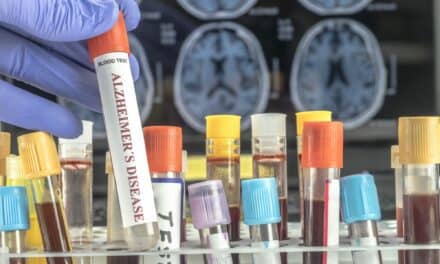Summary: A new study by the FNIH Biomarkers Consortium reveals that certain blood tests are as accurate as spinal taps and brain scans in detecting amyloid plaques, potentially revolutionizing Alzheimer’s disease diagnosis and monitoring.
Takeaways:
- Non-Invasive Diagnosis: The study demonstrates that specific blood tests can accurately identify Alzheimer’s-related brain changes, offering a less invasive alternative to traditional cerebrospinal fluid tests and brain scans.
- Clinical and Research Benefits: These blood tests could enhance clinical diagnosis and expedite drug development by facilitating the selection of suitable participants for clinical trials.
- Data Accessibility: The comprehensive dataset from the study is available to the scientific community, allowing further research into the accuracy and utility of Alzheimer’s blood tests and the effects of various factors on amyloid pathology.
A new study, developed and launched by the Foundation for the National Institutes of Health (FNIH) Biomarkers Consortium, found some blood tests are accurate enough that they are suitable for clinical use and could replace spinal taps and brain scans in many patients with cognitive impairment. The study compared the accuracy of leading commercial blood tests in detecting amyloid plaques, a characteristic feature of Alzheimer’s.
Blood Tests for Alzheimer’s Disease
Some blood tests recently have been shown to identify the telltale brain changes of Alzheimer’s disease as accurately as established, more invasive methods, such as brain scans and cerebrospinal fluid tests. Yet, their widespread use in clinical practice has been limited by a lack of robust data validating their accuracy.
The study results will be presented in an oral session at the Alzheimer’s Association International Conference (AAIC) in Philadelphia. The detailed study findings are available on the MedRxiv pre-print server.
“The recent approvals of new anti-amyloid drugs—and the many treatments being studied in clinical trials—underscore the pressing need for more accessible, less invasive testing for early detection of Alzheimer’s,” says Julie Gerberding, MD, MPH, President and CEO of the FNIH. “This collaborative research effort has resulted in a rich dataset that is freely available to the scientific community and moves us closer to our goal—accelerating the development of Alzheimer’s diagnostic tools and therapeutic options for the millions of people who suffer from this disease.”
Blood Tests Versus Cerebrospinal Fluid Tests
The study confirmed that some blood tests have accuracy similar to established cerebrospinal fluid tests, which require a spinal tap, in determining the presence of amyloid plaques as measured by positron emission tomography (PET) scans. The project team evaluated commercially available tests developed by ALZpath, C2N Diagnostics, Fujirebio Diagnostics, Janssen, Quanterix, and Roche Diagnostics. Using blood samples from the Alzheimer’s Disease Neuroimaging Initiative (ADNI), the team assessed the ability of these tests to accurately detect amyloid plaques and tau tangles, decrease in brain volume, and clinical dementia symptoms.
The study also offered further confirmation that blood tests measuring levels of the protein p-tau217 are the most accurate in determining the presence and amount of amyloid plaques. In addition to their use in clinical diagnosis, the Alzheimer’s blood tests could speed future drug development by helping researchers select the optimal participants for clinical trials.
“Many Alzheimer’s blood tests are now clinically available. Some are highly accurate, while others are little better than flipping a coin. Doctors need to know which tests can be trusted,” says Suzanne Schindler, MD, PhD, a clinical neurologist and the Fluid Biomarker Core Leader at Washington University School of Medicine in St. Louis, and a member of the FNIH project team. “This study generated an incredible dataset that is easily accessible to researchers, who can scrutinize our findings and also answer many more questions about blood tests for Alzheimer’s.”
Slowing Cognitive Decline
An important goal of current research is evaluating whether certain treatments may prevent or slow the onset of cognitive decline in patients with early Alzheimer’s brain changes. The FNIH study found that some blood tests accurately detected low levels of brain amyloid in people without cognitive impairment, and the FNIH project team is performing additional analyses to evaluate how well these blood tests can predict the progression of Alzheimer’s disease over time, including the likelihood of pre-symptomatic individuals eventually developing cognitive symptoms.
Data from this study are available via ADNI for investigators interested in further studying the performance of these tests as well as evaluating other scientific questions, such as the effects of age, sex, genetics, medical conditions, race, and the social determinants of health on amyloid pathology.




